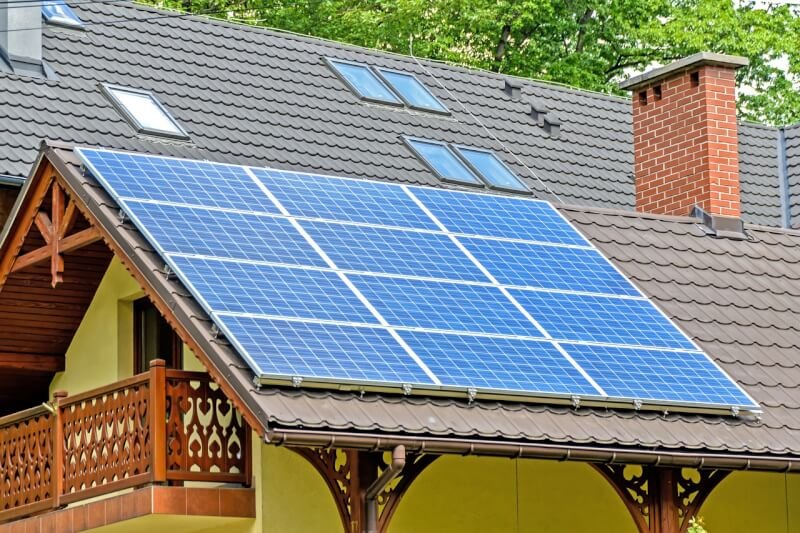If you’re an avid RV camper looking to utilize solar power, selecting the right size and type of solar panels is essential. It can be overwhelming to navigate through the various options available in the market, but fear not! In this article, we will guide you on how to choose the perfect solar panels for your RV camping adventures. So, get ready to harness the power of the sun and embark on an eco-friendly and sustainable journey!
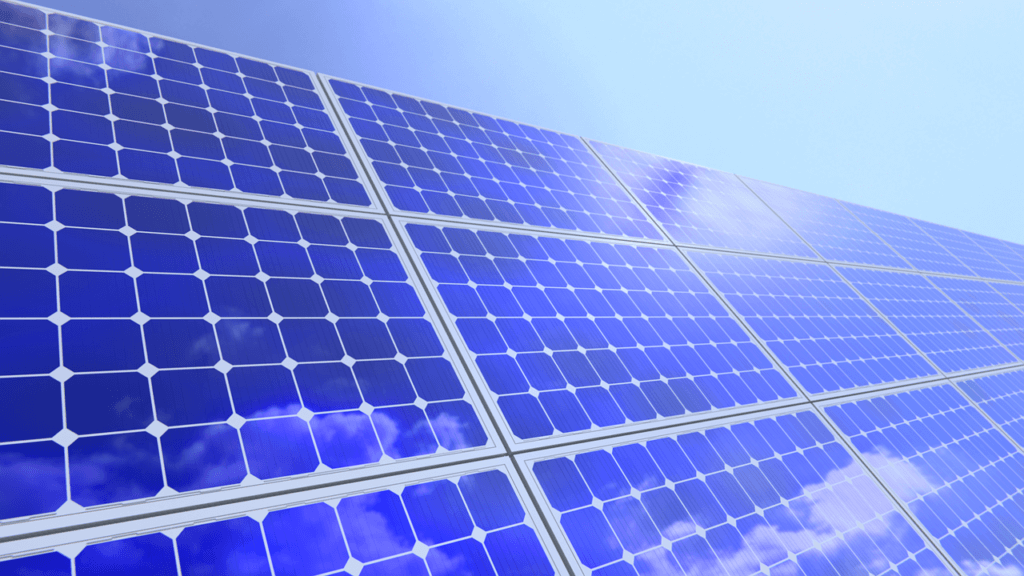
Benefits of RV Camping Solar Panels
Off-grid capability
Having solar panels installed on your RV allows you to enjoy the freedom and flexibility of off-grid camping. With solar power, you can stay at remote campsites or go boondocking without worrying about hooking up to electrical outlets. This means you can fully embrace nature and explore the great outdoors without sacrificing modern conveniences.
Cost savings
One of the major benefits of RV camping solar panels is the potential for significant cost savings. By harnessing the power of the sun, you can reduce or even eliminate the need to rely on traditional energy sources. This means saving money on campground fees, fuel costs for generators, and electricity bills. Over time, the investment in solar panels can pay for itself and provide long-term savings.
Environmental friendliness
Solar energy is a renewable and clean source of power, making it a great choice for environmentally conscious campers. By using solar panels to generate electricity for your RV, you can minimize your carbon footprint and reduce dependence on fossil fuels. This eco-friendly approach helps preserve the natural beauty of camping destinations and contributes to a more sustainable future.
Quiet and low maintenance
Unlike noisy generators, solar panels operate silently, allowing you to enjoy the peace and tranquility of nature without disturbance. Additionally, solar panels are designed to be durable and low maintenance. With no moving parts, they require minimal upkeep, reducing the need for regular maintenance and repairs. This means you can spend less time on maintenance and more time enjoying your camping adventures.
Factors to Consider before Selecting Solar Panels
Energy consumption
Before selecting solar panels for your RV, it is important to determine your energy consumption needs. Consider the appliances and devices you will be using in your RV, such as lights, refrigerator, microwave, and electronic devices. Calculate the total wattage, voltage, and ampere requirements to ensure you choose solar panels that can meet your power needs.
Available space
Another factor to consider is the available space on your RV’s roof or exterior for solar panel installation. Assess the dimensions and layout of your RV to determine how many solar panels can fit comfortably. Keep in mind any obstructions such as vents or air conditioning units that may affect the placement of the panels.
Sun exposure
The amount of sun exposure your RV receives is crucial in determining the effectiveness of solar panels. Consider the locations you plan to travel to and the average amount of sunlight they receive. Areas with consistent and ample sunlight will allow your solar panels to generate maximum power throughout the day.
Budget
Establishing a budget is essential in choosing the right solar panels for your RV. Consider the initial investment for purchasing and installing solar panels, as well as any additional accessories or equipment needed. Assessing your budget will help you prioritize the features and specifications that are most important to you.
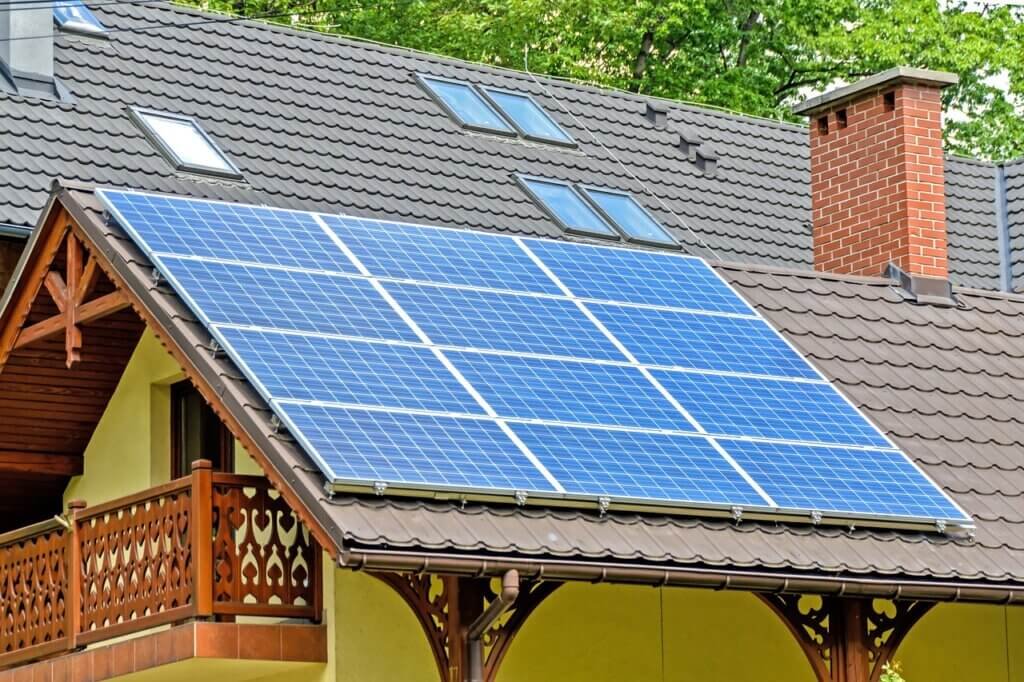
Understanding Solar Panel Size
Wattage
Wattage refers to the amount of power a solar panel can produce under specific conditions. It indicates the maximum output of electricity that can be generated by the solar panel. Understanding the wattage of solar panels is important in determining if they can meet your energy consumption requirements.
Voltage
Voltage is another important factor to consider when selecting solar panels. It represents the electrical potential difference between two points in a circuit. Higher voltage solar panels are generally more efficient in long-distance power transmission, while lower voltage panels are better for systems with shorter distances.
Ampere
Ampere, or current, measures the rate at which electric charge flows through a circuit. It is important to consider the amperage of solar panels to ensure they can provide enough current to meet your power needs. The combination of voltage and amperage determines the total power output of the solar panel.
Physical dimensions
The physical dimensions of solar panels should be taken into account when selecting the right size for your RV. Measure the available space on your RV’s roof or exterior and compare it to the dimensions of different solar panels. Make sure to leave some clearance around the panels for proper ventilation and maintenance.
Calculating Power Needs for RV Camping
Determining daily energy consumption
To calculate your daily energy consumption, make a list of all the appliances and devices you plan to use in your RV. Determine the power consumption of each item in watts and estimate the number of hours you will use them per day. Multiply the wattage by the hours of use to find the daily energy consumption for each appliance, then add them all together.
Factors that affect energy consumption
There are several factors that can affect your RV’s energy consumption. The outside temperature, insulation of your RV, and the efficiency of your appliances can all impact how much power you will need. Additionally, your personal habits and lifestyle choices, such as the frequency of device charging or the use of high-power appliances, should be taken into account.
Estimating solar panel output
To estimate the solar panel output you need, divide your total daily energy consumption by the average number of sunlight hours in your camping location. This will give you an approximation of the wattage you require from your solar panels. Keep in mind that solar panel efficiencies vary, so it’s recommended to choose panels with a slightly higher output to ensure reliable power generation.
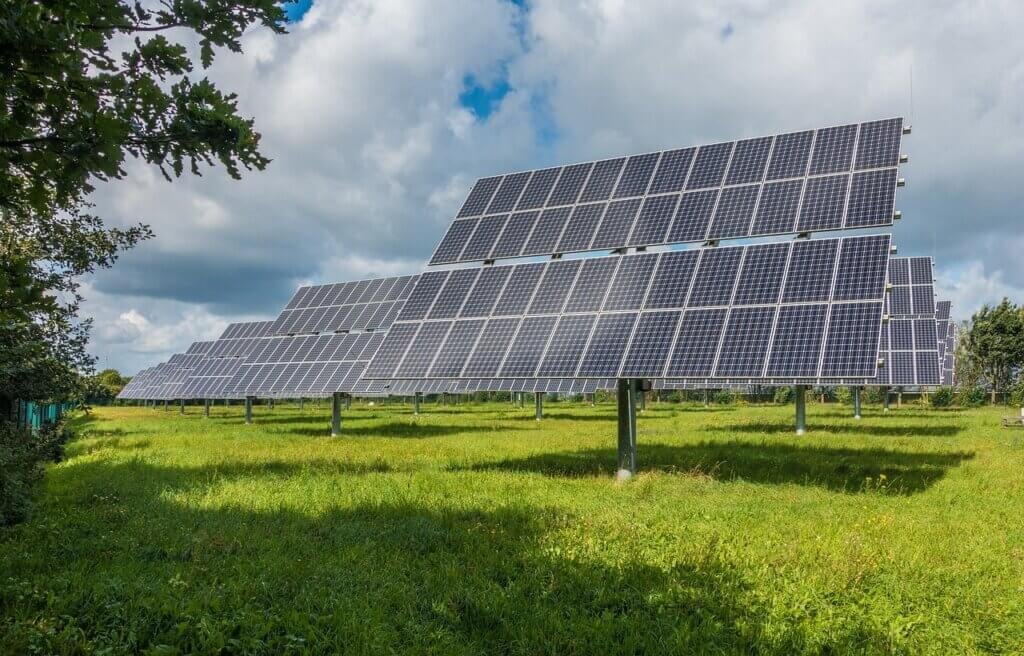
Types of RV Camping Solar Panels
Monocrystalline solar panels
Monocrystalline solar panels are made from a single crystal structure, allowing for higher efficiency and power output. They are known for their sleek black appearance and perform well in low-light conditions. Monocrystalline panels tend to be more expensive but offer greater power generation in limited space.
Polycrystalline solar panels
Polycrystalline solar panels are made from multiple crystals, resulting in a slightly lower efficiency compared to monocrystalline panels. However, they are more cost-effective and offer good performance in moderate to high-light conditions. Polycrystalline panels have a bluish hue and are a popular choice for RV owners.
Thin-film solar panels
Thin-film solar panels are lightweight and flexible, making them suitable for curved or uneven surfaces. They have a lower efficiency compared to crystalline panels but are more affordable and compact. Thin-film panels work well in low-light conditions, making them a reliable choice for RV camping.
Amorphous silicon solar panels
Amorphous silicon solar panels are made from non-crystalline silicon, allowing them to be lightweight, flexible, and durable. They have lower efficiency but perform well in low-light conditions and shaded areas. Amorphous silicon panels are ideal for RV owners looking for a rugged and reliable solar panel option.
Comparison of Solar Panel Types
Efficiency
Monocrystalline solar panels are known for their high efficiency, followed by polycrystalline and thin-film panels. Amorphous silicon panels have the lowest efficiency but offer advantages in specific conditions. Consider your power needs and available space to determine which type of panel will best suit your requirements.
Appearance
Monocrystalline panels have a sleek black appearance, while polycrystalline panels have a bluish hue. Thin-film panels and amorphous silicon panels are generally darker in color. Consider the aesthetic aspect when choosing solar panels for your RV, as they will be visible on the roof.
Durability
Monocrystalline and polycrystalline panels are known for their durability and can withstand harsh weather conditions. Thin-film and amorphous silicon panels are generally more flexible and resistant to impact damage. Consider the climate and outdoor conditions you will be exposed to when selecting solar panels.
Cost
Monocrystalline panels are typically the most expensive, while polycrystalline panels offer a good balance between cost and efficiency. Thin-film and amorphous silicon panels are generally more affordable options. Consider your budget and the long-term savings potential when evaluating the cost of different solar panel types.
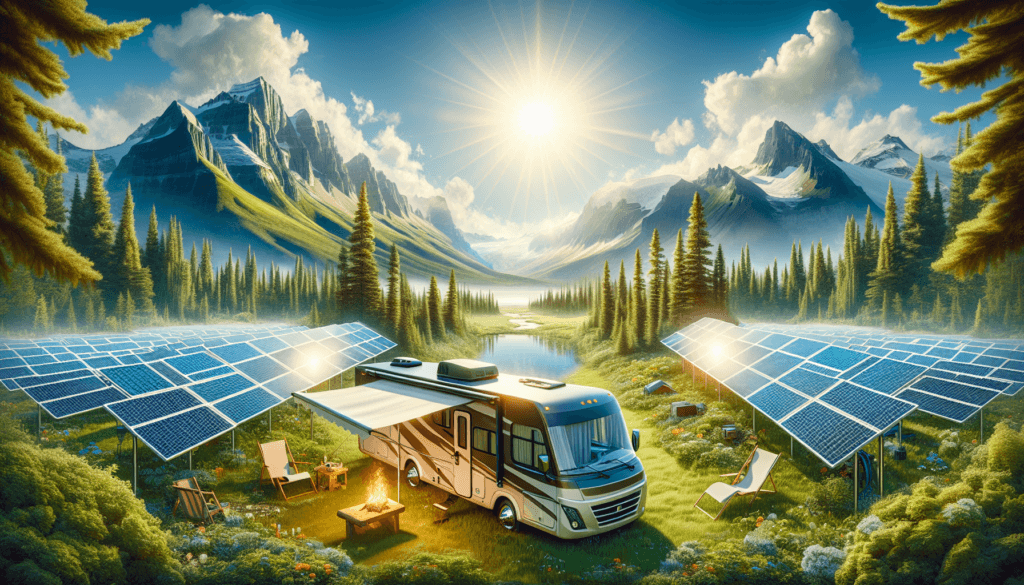
Selecting the Right Size of Solar Panel
Matching power needs with solar panel output
To select the right size of solar panel, match your power needs with the solar panel’s output. Calculate your daily energy consumption and ensure the selected panel can generate enough power to meet those needs. Keep in mind the efficiency of the panel and adjust the size accordingly.
Considering available roof space
Consider the available space on your RV’s roof when choosing the size of solar panel. Measure the dimensions and layout of your roof to determine how many panels can be comfortably installed. Optimize the use of available space while leaving room for proper ventilation and maintenance.
Prioritizing energy consumption
Prioritize your energy consumption needs to determine the size of solar panel required. If you have limited roof space or budget, focus on powering essential appliances and devices. Consider the efficiency and output of different panel sizes to ensure you can meet your priority power needs.
Determining the Type of Solar Panel
Efficiency requirements
If high efficiency is a top priority and you have enough space and budget, monocrystalline solar panels may be the best choice. If efficiency is important but space and budget are limited, polycrystalline panels offer a good balance. Thin-film and amorphous silicon panels are suitable if flexibility, durability, or cost are primary considerations.
Budget limitations
If you have a limited budget, consider cost-effective options such as polycrystalline, thin-film, or amorphous silicon panels. While they may have lower efficiency, they can still provide sufficient power generation for your RV camping needs.
Environmental considerations
If minimizing your environmental impact is a priority, consider the environmental friendliness of different solar panel types. Monocrystalline and polycrystalline panels have a longer lifespan and higher efficiency, reducing waste and maximizing power generation. Thin-film and amorphous silicon panels are made with less energy-intensive manufacturing processes.
Appearance preferences
Consider the appearance of different solar panel types and choose one that aligns with your aesthetic preferences. Monocrystalline panels have a sleek black look, while polycrystalline panels have a distinctive bluish hue. Thin-film and amorphous silicon panels are generally darker in color and can blend well with various RV designs.
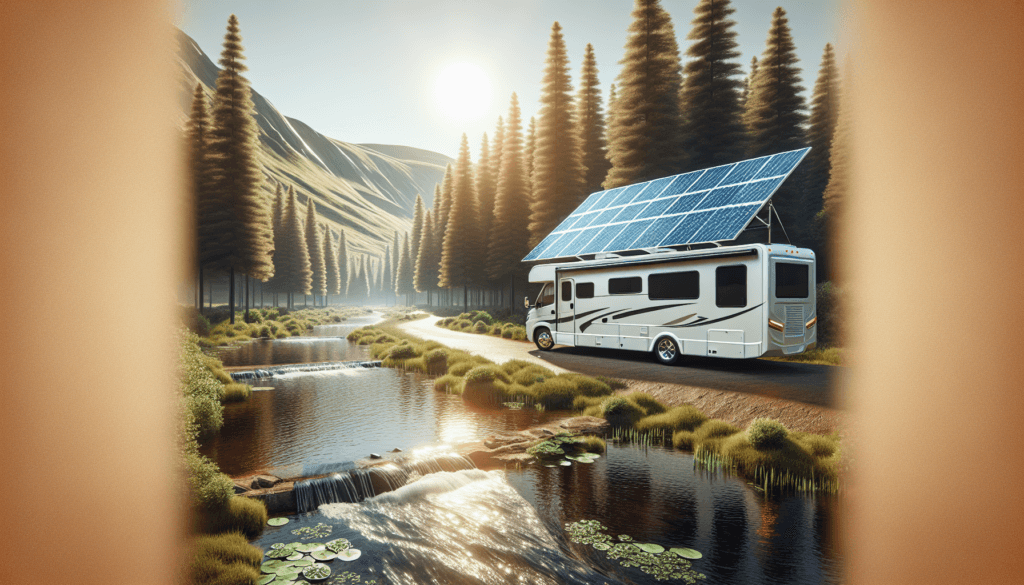
Installation Considerations
Roof mounting vs. portable setups
Decide between roof-mounted or portable solar panel setups based on your camping style and needs. Roof-mounted panels are permanently installed and provide a seamless integration with your RV’s electrical system. Portable setups offer flexibility and can be moved and repositioned as needed, making them ideal for those who frequently change camping locations.
Wiring requirements
Proper wiring is crucial for the safe and efficient operation of your RV camping solar panels. Consult professional advice or refer to manufacturer guidelines to ensure the wiring is done correctly. Consider using appropriate connectors, fuses, and charge controllers for optimal performance and battery safety.
Inverter and battery considerations
When installing solar panels on your RV, consider the compatibility with your RV’s inverter and battery system. Ensure that the solar panels can charge the batteries effectively and that the inverter can convert DC power to AC power for your appliances. Consult your RV manufacturer or a professional to determine the best setup for your specific RV model.
Safety precautions
During installation, follow safety precautions to ensure a smooth and secure setup. Make sure the panels are mounted securely and that all electrical connections are properly insulated. If you are not confident in your installation skills, it is recommended to seek professional assistance to avoid any risks or electrical hazards.
Maintaining and Maximizing Solar Panel Efficiency
Regular cleaning and inspection
To maximize the efficiency of your RV camping solar panels, perform regular cleaning and inspection. Remove any dirt, debris, or bird droppings that may accumulate on the panels, as they can obstruct sunlight and reduce power output. Inspect the panels for any damages or loose connections and repair or replace as needed.
Avoiding shading
Shading can significantly affect the performance of your solar panels. Position your RV or park in a way that minimizes shading from nearby trees, buildings, or other RVs. Regularly assess your camping location for potential shading issues and reposition your RV or portable panels accordingly.
Monitoring energy output
Monitor the energy output of your solar panels regularly to ensure they are functioning optimally. Utilize a solar energy monitoring system or check the charge levels of your batteries to gauge the performance of your panels. This will allow you to identify any issues or inefficiencies and take necessary measures to maintain their peak performance.
Optimizing tilt and angle
Adjust the tilt and angle of your solar panels to optimize their exposure to the sun’s rays. Some solar panel systems allow for adjustable mounting brackets that can be tilted to capture maximum sunlight throughout the day. Consider the sun’s position and adjust the angle accordingly to maximize energy production.
In conclusion, RV camping solar panels provide numerous benefits including off-grid capability, cost savings, environmental friendliness, and low maintenance. Factors such as energy consumption, available space, sun exposure, and budget should be considered when selecting solar panels. It is important to understand solar panel size in terms of wattage, voltage, ampere, and physical dimensions. Calculating power needs and considering the types of solar panels available will help determine the most suitable option. The comparison of solar panel types based on factors such as efficiency, appearance, durability, and cost further assists in decision-making. Selecting the right size and type of solar panel involves matching power needs, considering available roof space, and prioritizing energy consumption. Understanding the types of solar panels based on efficiency requirements, budget limitations, environmental considerations, and appearance preferences aids in making an informed choice. Installation considerations include deciding between roof mounting and portable setups, ensuring proper wiring, considering inverters and batteries, and following necessary safety precautions. Maintaining and maximizing solar panel efficiency involve regular cleaning and inspection, avoiding shading, monitoring energy output, and optimizing tilt and angle. With proper consideration and understanding, RV camping solar panels can provide a reliable and sustainable source of power for your adventures.

